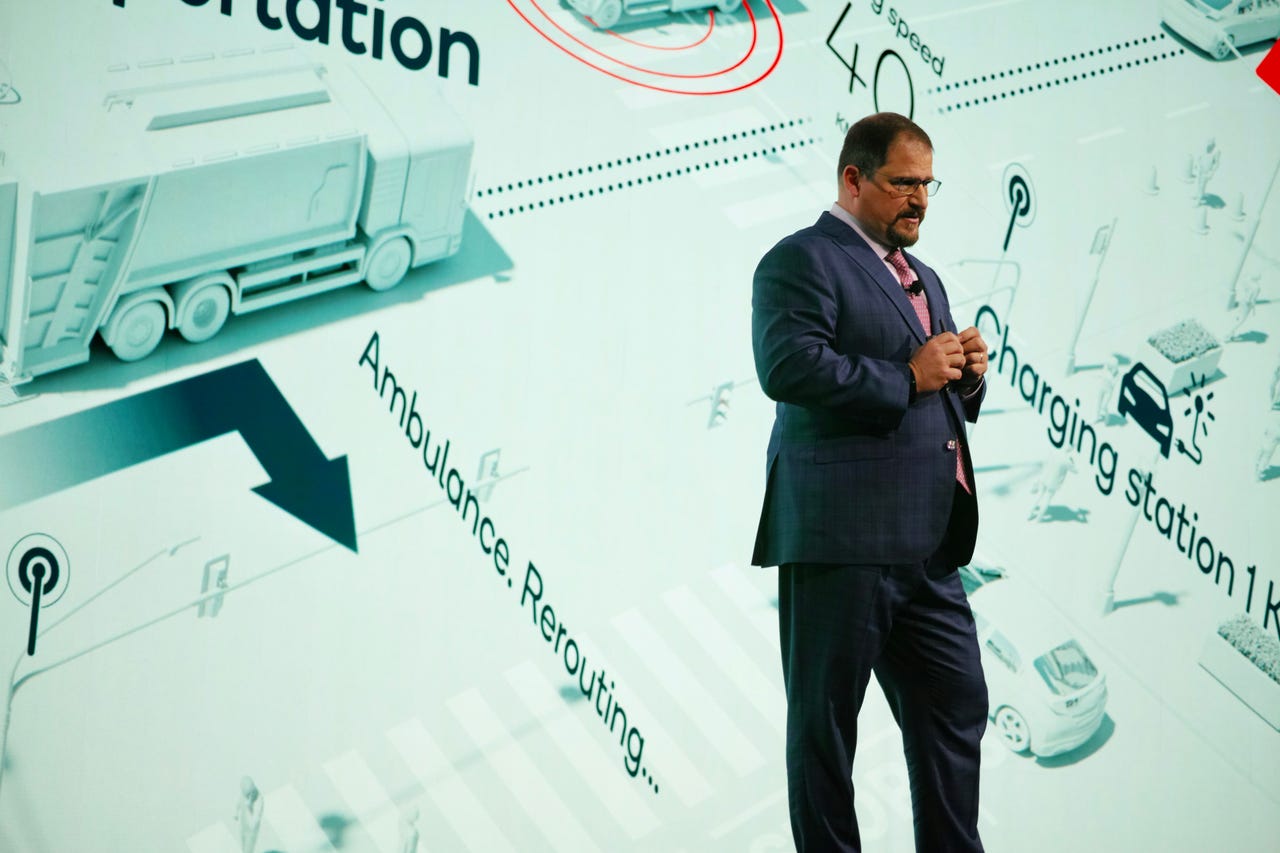Qualcomm CEO: We will be your ticket to the Metaverse


Qualcomm CEO Cristiano Amon told analysts that technologies at the edge of cloud networks can be "bigger than mobile," in particular, the Metaverse technologies of "XR."
Cristiano Amon, chief executive of mobile chip powerhouse Qualcomm, on Tuesday updated investors on the company's plans for 5G and the Internet of Things. He made the case that the company will dominate chips for what he called "IoT Next," the new frontier of the Internet of Things, including the Metaverse.
"If you are going to spend time in the Metaverse, Snapdragon is going to be your ticket," said Amon, referring to the company's mobile application processor and modem platform.
Also: Qualcomm beats expectations with record Q4 revenues across the chip business
The majority of Metaverse-style devices, such as Facebook's Oculus Quest, are "powered by Snapdragon," said Amon. According to the CEO, Oculus Quest 2 has sold 10 million units and is the first major consumer device that runs on the Snapdragon XR2 platform. It's fully customized for VR and AR with support for multiple cameras and technology like fixed foveated rendering. The end result is a more immersive experience with crisper graphics, more dynamic environments, and a more realistic feeling.
Amon believes the entire category of XR, including AR and VR, can be "bigger than mobile."
Amon also referenced Meta co-founder and CEO Mark Zuckerberg in his presentation. At the Facebook developer conference last month, Zuckerberg first introduced the Metaverse and the company name change to Meta. During the event, Zuckerberg's explained that "we have been working on this with Qualcomm for years."
Also: How Meta could much up the Metaverse
In addition to the Metaverse, Amon discussed consumer and industrial aspects of what he called IoT Next. One of those consumer aspects is the "transformation" of the PC. The PC is becoming more like a phone, Amon said, citing the need for constant cloud connectivity to run video games and to collaborate.
"We are very well positioned to be the preferred provider for PCs for the inevitable transition to ARM," said Amon, referring to Qualcomm's ARM-based CPUs that compete with CPUs from Intel and AMD.
Qualcomm is currently working on its next-generation CPU for Snapdragon, which Qualcomm CTO Jim Thompson said will be shown in six months' time.
Amon told analysts the company will expand from its current $100 billion annual market to a market potentially worth $700 billion by continuing to branch out in automobiles, PCs, and new forms of wireless networking such as fixed wireless broadband.
Qualcomm's discussion of the expanding market opportunities was part of lessening the company's reliance on Apple and its iPhone. Qualcomm has traditionally supplied the majority of modem chips for the iPhone. But Qualcomm's chief financial officer, Akash Palkhiwala, said that the company expects its share of iPhone to decline to 20% in iPhones that Apple will start selling in 2023. "Apple revenue as a percent of QCT will be low single digits exiting fiscal 2024," he said.
Instead, Cristiano and Thompson and Palkhiwala all emphasized that Qualcomm is going to be selling into Android phones that increasingly are "premium" or "high-tier" smartphones.
"87% of our addressable market is Android," said Palkhiwala. "So, that is why, as Cristiano said, our primary strategy in handsets is to be the platform of choice for premium and high-tier Android devices. And that's where the market is as well."
Among the new segments in the company's $700 billion potential market, said Amon, is the enablement of smartwatches and wireless headphones for everyone who is not Apple.
"For the investment community, the easy way to think of this, there's an incredible opportunity in a very large, very large SAM created by Apple for watches and Airpods," said Amon. "We're the company providing those devices for everybody else."